Dear Ladies and Gentlemen,
It is a great pleasure to welcome you at the 7th International Conference on Central European Critical Infrastructure Protection. Since the first year of the Conference, a State Secretary of the Hungarian Ministry of Defence has always served as its patron. I am honoured to have been asked to take on this role again this year.
The motto of this year’s conference is “Advanced technologies for critical infrastructure protection”. Critical infrastructure is the backbone of the modern world – from healthcare and transportation to sea cables and so on. It includes all the assets, systems and networks that are essential for the proper functioning of a society’s economy, safety and security. At the same time, critical infrastructure faces a growing threat from the cyberspace. Cyberattacks could also lead to physical consequences, in some cases even costing human lives.
In this regard, strengthening the resilience of critical infrastructure is essential. Protecting these systems is vital to ensuring continuous access to key services, and to upholding our country’s defence.
Hungary places great importance on effectively protecting the vital infrastructure needed for maintaining everyday living conditions. It is crucial that any disruption or manipulation of this infrastructure can be prevented or averted.
Dear All,
In today’s security environment, conflicts are increasingly developing in ways that go beyond traditional warfare logic. These include information manipulation, cyberattacks, economic coercion, instrumentalized migration, and threats of coercive diplomatic or military force. This form of warfare blurs the line between peace and war, creating “grey zones” below the threshold of open conflict.
To protect Hungary and its people, the Hungarian Defence Forces must be prepared for all types of threats. Within our ten-year development plan, we have committed an unprecedented share of resources to research, development, and the integration of innovative solutions into military capabilities. Of course, these efforts are fully aligned with NATO, EU and our national standards. To help coordinate them, the Ministry of Defence has established the Disruptive Technologies Working Group.
In addition, this year, for the first time in Hungary, the University of Győr has established the Department of Defence Innovation and Critical Infrastructure. This is a unique initiative that brings together the defence sector, industry, and the academic world. The Department will focus on critical infrastructure protection; cybersecurity and digital defence; autonomous systems and robotics; digital training environment; and material research and defence technologies.
The Óbuda University and the Ministry of Defence also have a long-standing and successful partnership. We are exploring further areas of cooperation with the University and I am convinced that many synergies can also be found between the University and the new Department in Győr.
Ladies and Gentlemen,
The past six years of this Conference have clearly demonstrated how important it is to protect critical infrastructure. Not just in times of war, but also in times of peace.
I hope that the professional and personal connections you make today and tomorrow will contribute to the success of this Conference as well as to your future work. I wish you all productive discussions.
Last but not least, let me thank the organizers for their excellent work!
Dr. Zsolt KUTNYÁNSZKY
State Secretary for Force Development and Defence Policy
Hungarian Ministry of Defence


